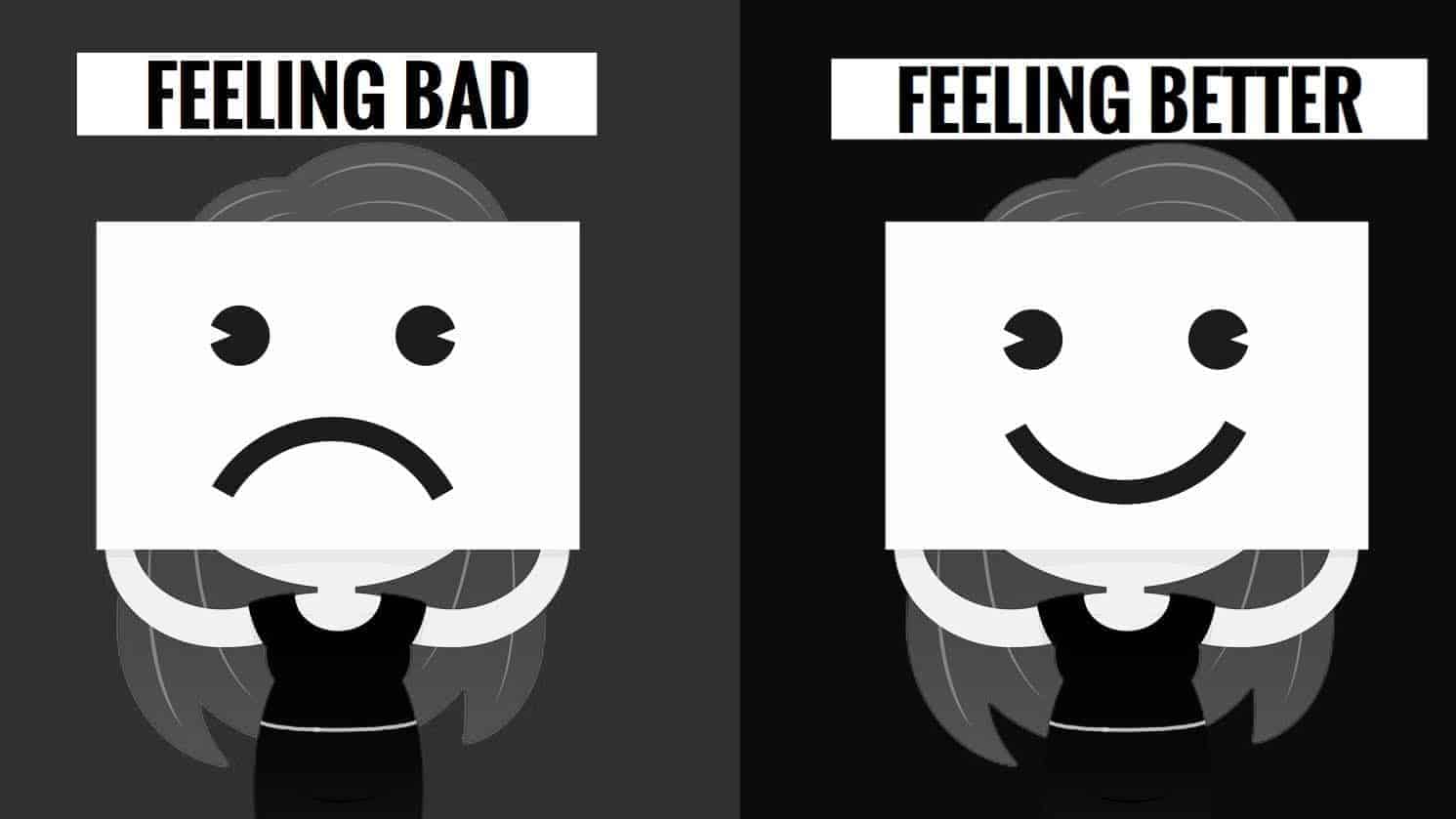Boredom can be frustrating and inconvenient, and most people would prefer never to have to deal with such an emotion. But did you know that you can turn boredom into more impressive results if you know how to use it to your advantage?
That’s right – boredom can be a good thing! All you have to do is learn to take hold of it and manipulate it to suit your needs. Here is how scientific research makes experts reveal eight ways to make boredom work for you.
1. Think Of Projects To Fill Your Time With
Boredom often means you have time to spare, and what better way to use that time than by filling it with a new project or two?
This spare time is precisely why the University of Central Lancashire’s Dr. Sandi Mann thinks being bored can be a positive thing. He explains that he thinks up many great ideas during the would-be dead time of his morning commute. This prevents the boredom from sinking in too harshly while keeping him productive!
So think about your life and your talents. What kind of projects can you embark on? Think about them and their details during short moments of boredom. The act of daydreaming has vast positive effects on overall creativity, so your boredom can make you more creative!
2. Recognize the Importance of Boredom
 Boredom isn’t without value. It’s the brain’s chance to take a day off and rest. People often underestimate what happens when you’re mentally exhausted. Too much strain on your mental frame of mind, and you could wind up burned out, unable to be productive, and lacking positive thinking.
Boredom isn’t without value. It’s the brain’s chance to take a day off and rest. People often underestimate what happens when you’re mentally exhausted. Too much strain on your mental frame of mind, and you could wind up burned out, unable to be productive, and lacking positive thinking.
Boredom forces you to stop and rest, and that’s pretty important in the grand scheme of things, so don’t take it for granted. Make sure you understand why boredom is, sometimes, necessary.
3. Take An Interest In Boredom
Boredom is, on the surface, the very definition of something that’s not interesting. But you can choose to take an interest in that boredom. That’s something that Harvard Medical School psychologist and Harvard Special Health Report Positive Psychology medical editor Dr. Ronald Siegel wholeheartedly recommends.
The goal is to think about the exact emotions you are experiencing at the point of boredom. What lies beneath the surface? Here are some questions to ask yourself:
- Are you experiencing negative emotions besides boredom?
- What is causing those negative emotions?
- How can you overcome those negative emotions?
- Is the boredom fed by the negativity or the other way around?
- What can you do to prevent this occurrence in the future?
4. Learn Something New
The brain is a mysterious thing. It’s always craving a little something new to learn. The problem is that once we get to a certain age, learning new things becomes less and less common.
But in the digital age of the Internet, there isn’t any excuse for not leaping on unlimited information access to fill your free time. This is probably why business writer Janet Choi at the career development site. The Muse is a big proponent of learning new subjects with online resources.
Here are some ideas for learning new things:
- Take a class on an exciting subject.
- Watch online videos about different topics.
- Take an online course.
- Tag along with friends or family to one of their activities
- Go somewhere you’ve never been before
- Try to discover a hidden talent.
- Take the next step in furthering your hobby or an already present skill.
Aside from just beating boredom, there are plenty of benefits to continuing to learn new things regularly. You’re picking up usable skills for the future. You’re boosting your cognitive ability. And, of course, you have more productive ways to occupy your time!
5. Mindfulness
Mindfulness involves practices that make you more aware of the space and time you currently inhabit. Those who have seen mindfulness meditation may be unsure as to how that act can help alleviate boredom. The answer is this: mindfulness needs you to stay “present” in the current moment, and this can help activate your dulled senses.
This is also a great way to embrace boredom. Instead of desperately trying to figure out how to keep yourself occupied, you’re choosing to sit still and be at peace with not having anything to do. On top of that, given the many benefits that mindfulness has been found to have for mental health and positive thinking, you’re also doing yourself a service.
The reasoning behind mindfulness as a practice to combat boredom is this. It moves you from the process of thinking to the process of merely feeling and experiencing, so your mind focuses on itself rather than on the perceived lack of stimulation. Here’s a good mindfulness practice to combat boredom:
· Step 1: Sight
Start by taking an object in your hands that is very familiar to you. Look at it carefully and pretend that you’ve never, ever seen it in your life. This will involve slowly pushing away the honest thoughts associated with this item and start anew. Turn it around and peruse it. Is there something about it you’ve never noticed before? Or does it, without an accompanying memory, become relatively meaningless?
· Step 2: Touch
Now, repeat what you did in step 1, but with another familiar object. Instead of observing it visually, now what you’ll want to do is pretend you’ve never touched this item before. Please pay close attention to its texture, its ridges or curves or lines, and how interaction with it feels.
· Step 3: Other Senses
You’ve got the gist now – it’s time to do the same thing for other senses. Look for familiar items in your environment, like the sound of the fan whirring, the taste of your favorite candy, or the scent of your perfume. Approach them as if you’ve never seen them before and discover them in new ways!
· Step 4: Application
Once you’ve gotten the hang of this sort of mindfulness, start applying it to your everyday life. If you’re struck by boredom, remove your memories of your current event from their influence over you. Treat everything like a new experience. How are you engaging with this brand new world? It’s a great way to bust boredom.
6. Do Something Quick Or Small
Sometimes, boredom is caused by doing the same thing for too long a period. In order to remedy this, you need a break from the norms of your current work. Here are some ways to get this break:
· Do Something Quick
Stuck with a long task that you’re bored with? Please put it on pause for a short time and do something that can be completed quickly and efficiently. This way, you’re managing to help relieve boredom by doing something that is still productive!
· Go For A Walk
Stand up, stretch, and walk around for five to ten minutes. This can kick your brain into gear and give you the change of scenery your mind is demanding. It’s also an excellent way to remain active, even at sedentary jobs.
· Do A Small Bit Of Work
Muscle through your current task that you’re bored with by setting yourself a very tiny goal. The motivation provided by a plan that may have a reward if you choose can be all your brain needs to force you through a hurdle. Once you’ve gotten that little bit done, you’ve earned a change of scene for a little while.
7. Think About What It Says About You
For years, people have made jokes about boredom, claiming that only people who are boring can experience boredom. York University’s Boredom Lab director, John Eastwood, has debunked this thought again and again. He is a firm believer, in fact, in the idea of boredom having a deeper meaning, and his research has found truth in that.
Eastwood states that it’s actually a “crisis” of sorts that is trying to make you reflect on yourself and the way you engage with the world around you. As such, when you’re bored, you should be looking inwards and seeking more profound meaning. To better understand this concept, here’s what Eastwood found in his research.
- There are two distinct personality types that experience boredom.
- The first personality kind is impulsive individuals who crave new experiences; they need to seek ways to occupy themselves.
- The second personality kind is anxious individuals who do not ever want to leave their comfort zone, instead of withdrawing to what they know out of fear and pain sensitivity.
If you suffer from severe boredom, the chances are that you’re one of these two personality types. As such, your first step in looking inward is determining which of these types you are. Once you know, you’ll be able to figure out how to overcome it very quickly. If you’re the first type, you will look for better ways to expand your horizons. If you’re the second, you will work on improving your anxiety symptoms so you can step out into the world.
8. Practice Self-Reflection
This advice ties in closely with the previous point. Use your spare time to reflect. Choi states that even spending just a small amount of time performing self-reflection can vastly improve how well you know yourself. This self-reflection can:
- Show you where your potential can be maximized
- Make you realize areas that need improvement
- Give you an idea that kickstarts your motivation
- Allow you some time to rest from current projects and take a step back to see the bigger picture
- Make you ponder how you’ve been spending your time and if it has been productive
So the next time you feel bored, stop, and look inward. Reflect on your life so far. You can even write this musing down in a journal if you want to! Whatever way you choose to do this task, you can be sure that you’ll come away from your moment of free time with positive knowledge that you can put to use.
 Final Thoughts On Learning Some Ways To Make Boredom Work For You
Final Thoughts On Learning Some Ways To Make Boredom Work For You
The next time you feel bored, take a deep breath, and try one of these eight ways to make boredom work for you. Instead of trying to chase away the boredom, use it as an opportunity to learn, grow, and do better. Who knows? That boredom might even be what sparks your next great project!



















